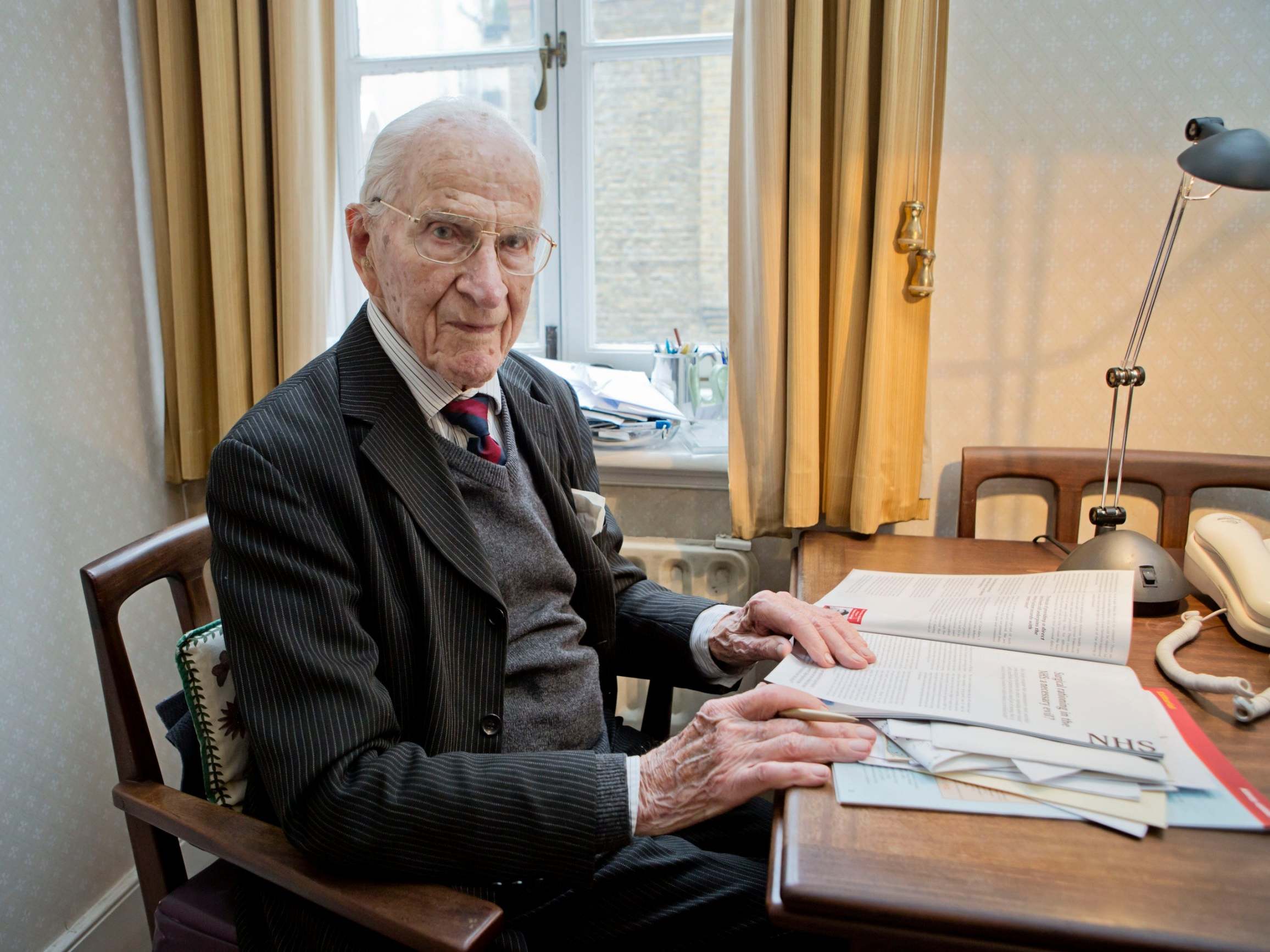William Frankland: Pioneering allergist who popularised the pollen count
He was known as the ‘grandfather of allergy’, and his research shifted public understanding of the subject

Dr William Frankland, who has died aged 108, was the allergist who popularised the concept of the pollen count, a simple scientific measurement which has become so important to the many millions of people who experience allergic reactions to plant pollen.
Alfred William Frankland was born in Battle, Sussex, in 1912, as one of twin sons of a parson. He was educated at St Bees School in West Cumberland and read medicine at Queen’s College, Oxford before being called up into the Royal Army Medical Corps at the outbreak of the Second World War.
In 1942 he was captured by the Japanese and spent more than three years at a prisoner-of-war camp in Singapore, where he provided medical help for wounded Japanese soldiers. “Medically, as a prisoner of war, we saw conditions which are now unknown,” he later said of this period of incarceration.
Recalling an incident where he narrowly avoided being executed by a solider, he pondered: “I think I’ve got a guardian angel that looks after me and that was one of the occasions when that hand went up and he didn’t put his bayonet through my chest.”
Following the war he joined the allergy department at St Mary’s Hospital, London, working as clinical assistant to Sir Alexander Fleming, who had recently received a Nobel prize for his work on penicillin.
Frankland soon became a proponent of the “hygiene hypothesis”, the idea that increased cleanliness and hygiene were the root cause of allergic reactions. He later noted: “We don’t set off our immune system early on, we are too clean. In the former East Germany, for instance, with very poor work and housing conditions, people were less allergic.”
His research on pollen allergies in the early 1950s demonstrated that antihistamine drugs were “not the cure-all that had been expected”. He therefore began looking at other ways in which the allergies could be tackled. St Mary’s took on a full-time botanist who began providing pollen count data to the British Allergy Society in 1953, at first for use by specialists.
Instrumentation still installed on the roof of St Mary’s draws in air onto a wax strip and microscopic analysis is then used to measure the average pollen grains in a cubic metre of air over a 24-hour period. By 1963 Frankland’s group was providing data to the British media to help allergy sufferers anticipate their possible reactions and the “pollen count” has since become a household term.
In 1962 Frankland became director of the allergy department at St Mary’s and undertook research into insect allergies, using himself as a test subject. On one such occasion his experiment with a South American insect bite led to life-threatening anaphylaxis. Only through swift injections of adrenalin was he able to save himself.
Frankland officially retired from St Mary’s at 65 but continued working well into later life and had recently celebrated his 108th birthday. Just last year he had spoken in the media about caesarean section, warning that it was “too sterile” a way to begin life and that natural birth gives valuable early exposure to pathogens which in turn boosts the immune system.
He had supported the Anaphylaxis Campaign since its foundation in 1994. The William Frankland Award for Outstanding Services in the field of Clinical Allergy is awarded each year at the British Society for Allergy and Clinical Immunology (BSACI) annual meeting. He was awarded an MBE in 2015 for services to allergy research.
Speaking about his longevity, which he attributed to good luck, Frankland said: “I’ve come close to death so many times – from the 1918 Spanish flu pandemic, three and a half years spent as a Japanese prisoner of war, to experiencing anaphylaxis following a tropical insect bite. But somehow I’ve always managed to miss it and that’s why I’m still here.”
His is survived by two sons and two daughters by his wife Pauline, who died in 2002.
William Frankland, allergist, born 19 March 1912, died 2 April 2020
Subscribe to Independent Premium to bookmark this article
Want to bookmark your favourite articles and stories to read or reference later? Start your Independent Premium subscription today.

Join our commenting forum
Join thought-provoking conversations, follow other Independent readers and see their replies